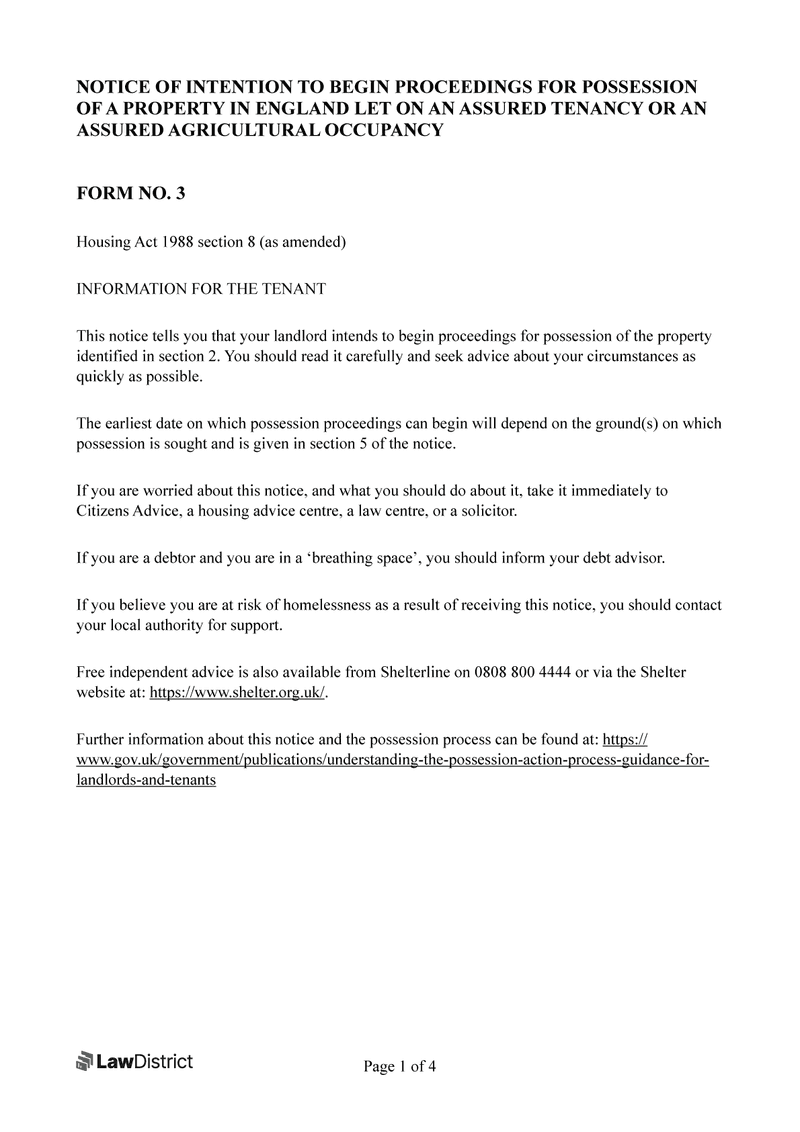An Eviction Notice, or Notice of Seeking Possession, is a formal declaration from a landlord to a tenant indicating that the tenant must leave the rented property by a specified date.
It is designed to provide tenants with a clear timeframe to fix the issue or prepare to vacate the property.
Creating this document is the first step in the legal eviction process and serves as a basis should the matter end up in court.
The reasons for giving a tenant Notice of Eviction Letter:
- Non-payment of rent
- Breach of rental agreement terms
- Non-renewal of lease
- Property damage by the tenant
- Unlawful activities conducted on the premises
When to use an Eviction Notice in the UK?
In the UK, the circumstances under which a landlord can issue an eviction notice are clearly defined by law and vary across England, Wales, Scotland, and Northern Ireland.
There are 2 typical moments that you would use an Eviction Notice:
- When the fixed term of the tenancy has ended
- The tenant has breached the tenancy agreement
When drafting your Eviction Letter, UK laws must be followed. Depending on the country, you will need to use the appropriate Eviction Notice, depending on why you are evicting the tenant.
Pre-made Eviction Notice templates can be used to make the drafting process quicker. Download our Eviction Notice template to avoid creating the wrong type of form when you plan on reclaiming your property.
